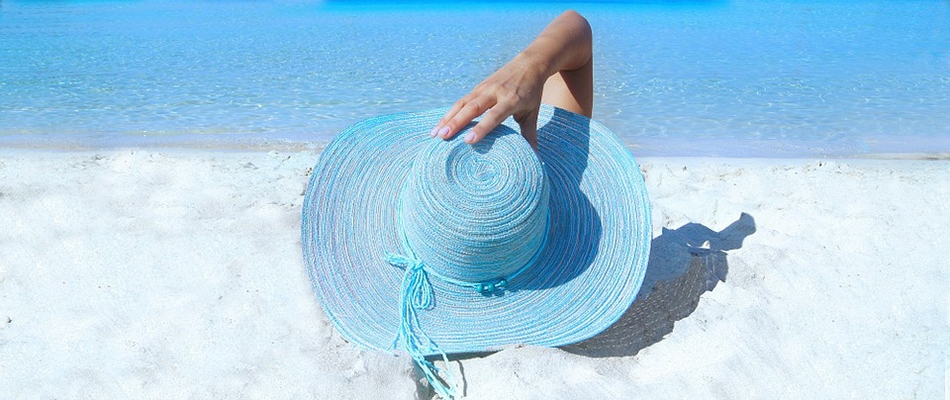
How to treat a sunstroke at home?
What kind of health issues can heat waves cause?
Our bodies are exposed to a variety of risks in the summer heat, but before you start treating yourself it is important to identify the real reason for the condition. If the symptoms are severe and do not subdue within 24 hours you must consult with a doctor. Let’s see the list of health issues heat waves can cause.
Heat stress
No matter where you are, if the temperature rises above 30°C for a long time it is not only sleep, but also simple everyday tasks can become a burden. With continuous sweating you don’t only lose water, but it can result in mineral deficiency, for example magnesium deficiency that is well-known to cause irritation, impaired concentration and stress.
Heat exhaustion
During extensive heat or greater physical load the heart pumps the blood to the blood vessels located in the external layers of skin in order to reduce the excess heat in the body. The heart does it by increasing the pumping through the dilated blood vessels. This profuse sweating could cause heat exhaustion that has two possible results: a dehydrated or salt-deficient state. People suffering from heat exhaustion could show signs of tiredness, headache or dizziness along with the high heart rate.
Heat retention (hyperthermia)
In cases when heat is coupled with a high level of humidity and sweat cannot evaporate from the skin, it inhibits heat dissipation and can lead to hyperthermia. The high pulse is also coupled with nausea, vomiting, sweaty skin and dry mouth.
Heat collapse (fainting because of the hot weather)
Fortunately, fainting because of the hot weather lasts only a short time (a few second to a few minutes), therefore it can be easily recognized. The blood pumped towards the limbs to help heat dissipation could cause temporary circulatory problems in the brain if someone is susceptible for it, which in turn can lead to a loss of consciousness. Fainting could be preceded by a sense of weakness, nausea, tinnitus or blurred vision.
Water intoxication
A sudden intake of large quantities of water to replenish water and salt deficiency caused by dehydration may result in the dilution of nutrients in the blood that can cause a severe condition called water intoxication. The sodium content of the blood may remain low for several days, resulting in dizziness, muscle weakness, fatigue, confusion or even the loss of consciousness or coma.
Heatstroke
During heat spells the most severe health condition is heatstroke that occurs when the body temperature rises above 40°C. In such cases the body has no other method to compensate and get rid of the excess heat, which results in severe blood circulation deficiencies, coupled with a pale and cool skin as well as a high heart rate. The ambulance must be called immediately because heatstroke requires professional medical treatment as it can be even life-threatening.
What are the symptoms of sunstroke and how does it develop?
Based on the above it is most recommended that you stay in the cool during a heat spell and you should avoid staying on the sun or doing sports in the heat altogether.
But who would want to sit in an air-conditioned room when you can finally enjoy your holiday, hang out on the beach, swim in the pool or sunbathe all day long with a delicious cocktail in hand? It is more than natural that you forget about all the other considerations and want to return from your holiday overly tanned. However, an overdone sunbathing has its dangers. Sunstroke has not only extremely unpleasant symptoms, but it may disrupt your entire holiday.
You must protect your head from direct exposure to the sun, otherwise your brain literally overheats. As to what extent and how quickly this occurs will also depend on the how thick your hair is. This is the reason why small children and the elderly are even more exposed to sunstroke. During sunstroke the meninges beneath the skull heats up that can lead to serious health damage. This is why you have to pay special attention to recognize the symptoms in time.
The symptoms of a sunstroke:
- red head, dry and hot skin
- high pulse rate
- headache
- sense of thirst
- dizziness, weakness, staggering walk
- nausea, vomiting
- sensitivity to light
- low-grade fever, high fever
- in more severe cases even disorientation and the loss of consciousness
Quick home treatment techniques for a sunstroke
Because the symptoms typically occur in the evening, you should be prepared to use some home practices. Fortunately, in most cases the symptoms can be alleviated within a few hours. What can you do if you already have a heatstroke and want to recover fast?
- stay in a cool, dry and shaded place
- use air conditioning or a fan to ensure that there is an airflow
- wear only minimal and loose clothing
- preferably stay lying down, with your upper body slightly higher
- place a cold compress on your forehead and wrists
- take pain killer to relieve the headache
- Supplement the salt and minerals lost during sweating – in addition to room temperature mineral water you may take isotonic drinks or special salt capsules developed for athletes
- If you feel nauseated you may also have a loss of appetite, but you can always eat an oat bar or prepare a meal replacement shake
You must avoid the following:
- the consumption of alcoholic beverages
- caffeinated drinks
- physical exercise
- tight clothes with bad air circulation – this can already prevent that you would feel sick
Keep the advice shared here if you are going on holiday now. Do not sunbathe excessively to avoid getting sunburned so you could enjoy each and every minute of your long-deserved holiday.

